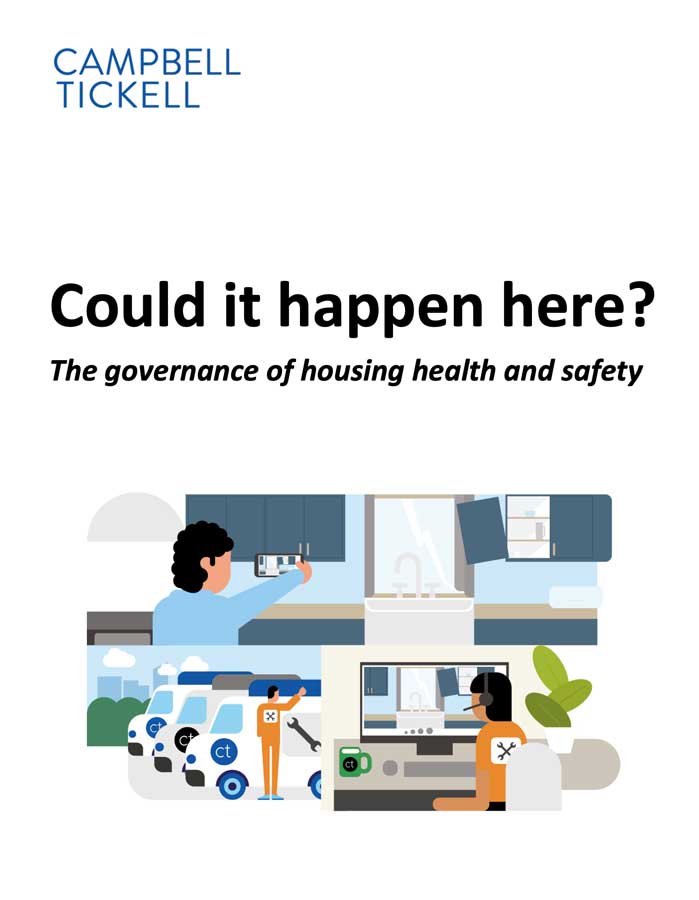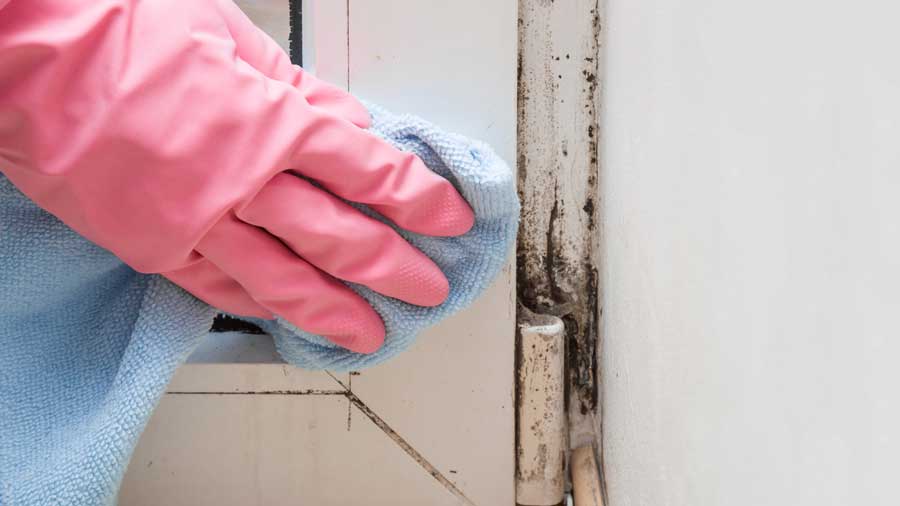“It couldn’t happen here …” (or could it?)
Social housing may not carry the same risks as deep sea diving but the health and safety of tenants is a vital issue for providers. A new briefing from Campbell Tickell equips boards with the knowledge they need to truly put safety first

GOVERNANCE
Image: Istock

James Tickell
Partner, Campbell Tickell

James Tickell
Partner, Campbell Tickell
Issue 67 | September 2023
‘Health and safety gone mad’ is a familiar trope from certain newspapers – narratives of mollycoddling, bureaucracy and pointless prohibitions. Yet when things do go wrong, and people are hurt, the very same commentators are equally keen to point the finger of blame. The recent tragedy of the sightseers to the wreck of the Titanic is a sad case in point. Suddenly it becomes clear that over the years, there had been warning signs, would-be whistleblowers and trenchant questions about the suitability of designs and equipment.
In social housing, we’ve had our own tragedies and disasters too. There were the Lakanal House and then Grenfell Tower fires, the sad death of Awaab Ishak and any number of less media-prominent issues involving fires, damp and mould, asbestos, carbon monoxide, personal safety and more besides. Lessons are always learned, of course, but too late for those who have suffered or lost their lives.
Where the buck stops
And for all of these sad events, the buck always stops with the senior executives, the board members, trustees, company directors – however they are referred to. In law, that is very clear, and the ultimate sanction is that of a corporate manslaughter charge, backed up by the possibility of unlimited fines for certain offences.
For board members, these are sobering responsibilities. Of course, they can’t all be experts on health and safety. And, of course, they will need policies, committees, expert staff and external advisors to back them up. But they do need to know what questions to ask, and when to carry on asking those questions until they have good assurance, as opposed to just reassurance.
Campbell Tickell has now produced a briefing which aims to equip board members with an overall understanding of some key issues, and a good set of questions for them to pursue. It is literally true to say that the briefing has more questions than answers, as it sets out the areas where relentless board member curiosity is vital.
‘Chronic unease’
In the briefing, we introduce the concept of ‘chronic unease’ in relation to the governance of health and safety. This may sound unsettling, but it has a solid track record from safety-critical industries such as deep-sea mining, quarrying and aerospace.
The five key features of chronic unease are:
- A tendency to worry about health and safety
- Vigilance – awareness of near misses, local failures
- Resisting complacency
- Imagination to visualise unfavourable scenarios
- Flexibility, systems thinking, not jumping to conclusions
The lessons are simple. Don’t necessarily believe all that you are told or read. Understand what the risks are, and don’t be afraid to ask questions. Ask yourself what else could be done, or what might have been overlooked. Just because things have worked so far, doesn’t mean they’ll work going forward – very few systems are 100% reliable.
Learn from tenant complaints, mistakes and near misses, whether your own or those of others. And when things seem to be going well, keep an eye on the telltale minor issues, as they are the proverbial canaries in the coal mine.
Safety first
Social housing may not bring the extreme risks of deep-sea exploration, but the health and safety (and sometimes lives) of millions of tenants and employees – including some very vulnerable members of society – depends on our effective performance in this area.
Prevention is always better than cure, and the inevitable benefit of hindsight after an adverse event is cold comfort for those involved. We hope that our briefing can contribute in some small way to enhancing that vital culture of truly putting safety first.
“Board members need to know what questions to ask, and when to carry on asking those questions until they have good assurance, as opposed to just reassurance.”

CT Briefings
To download the Briefing for Scotland, visit the Scottish Federation of Housing Associations.
To download the version for England, visit our website.
A version for Wales will be available soon.
Board training
Campbell Tickell would be pleased to present the paper to boards and/or committees, either online or in person. This can be offered for between one hour, up to a more interactive half day session, with two hours recommended.
To find out more please contact us:
James Tickell, Partner at Campbell Tickell
or Catherine Little, Director at Campbell Tickell
or call: 0208 830 6777


